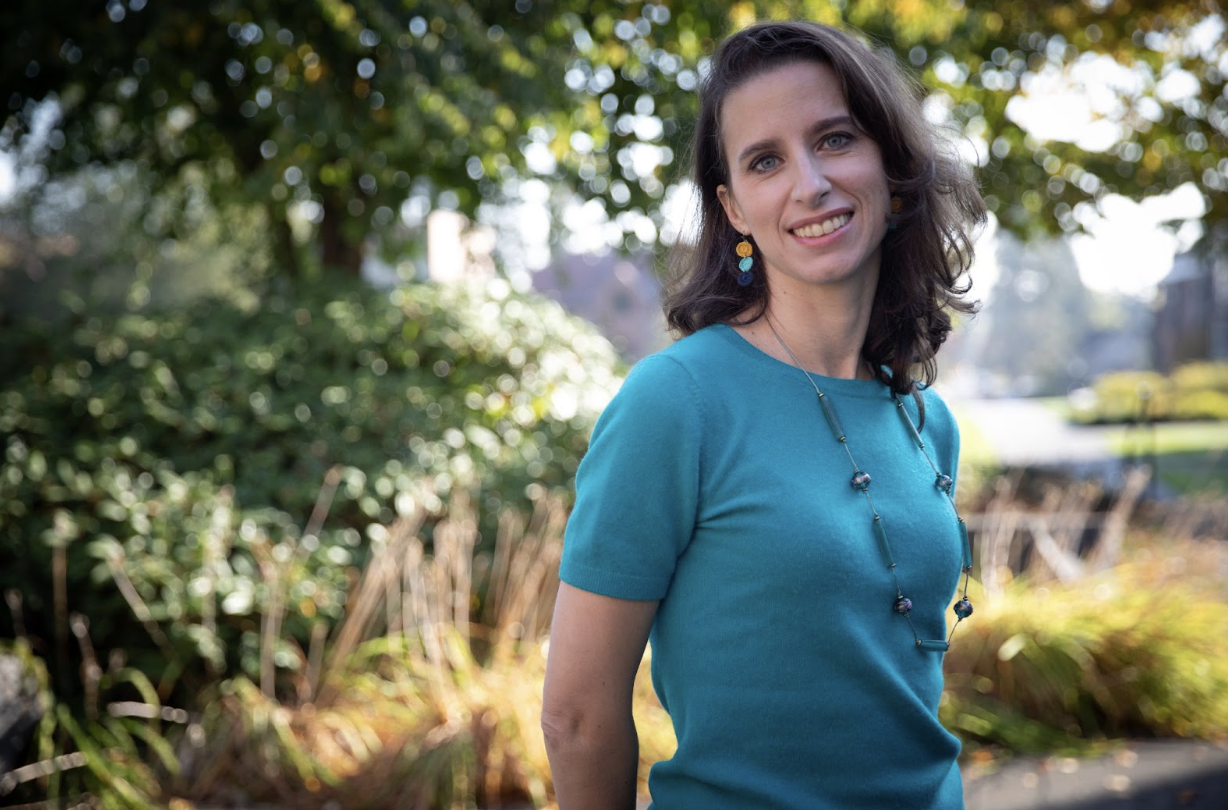
For the past several years, when philosophy Professor Sara Protasi hasn’t been teaching a class, taking care of her children or dancing, she has been thinking about envy. She has thought about envy so much that not only did she write her second Ph.D. dissertation on the topic, she literally wrote a book on envy. That book, “The Philosophy of Envy,” hit the bookshelves in 2021 and a paperback version followed in 2022. While giving academic attention to an often maligned emotion, Protasi not only developed a taxonomy of envy, but thought long and hard about how to envy better.
To be clear, Protasi isn’t encouraging people to spend their waking lives envious of those around them. She knows envy too well to encourage that and she recognizes the dangers of envy. “It can be counterproductive; it can be the arrow that shoots itself. It can be the thing that spoils the good it covets. So, we have to be careful with envy,” she said.
Instead, Protasi is more concerned with how we can make envy serve a function, rather than simply making us feel bad about ourselves. To start, it’s important that we recognize that feeling envy is normal, which Protasi thinks is hard to do because even talking about our envious tendencies can make us feel bad. “It’s very hard to admit it because it involves a perception of inferiority, it’s a wound to one’s self-esteem. So, it’s hard,” she said.
Her book has already had some positive effects, as she has found that with all her knowledge about emotion, people feel more comfortable admitting their envious feelings to her. Despite the potential awkwardness conjured up by the idea of lines of people waiting to confess their envy to Protasi after she talks about her book, she thinks it’s a good thing. “It doesn’t make you a horrible person. It just makes you a normal human being who sometimes feels like other people are better than me as something I care about. And that’s painful,” Protasi said.
The trick, according to Protasi, is to try and feel what she calls “emulative envy” in her book. While emulative envy still has another person as its focal point, it isn’t the person that is envied, it is a skill or a perceived advantage they have. In Protasi’s eyes, this is the kind of envy that will encourage self-improvement because even in the absence of the other person, you would still have the desire to improve. Envy just gives you a goal and a model to facilitate that improvement. That’s where the power of emulative envy lies, the ability to tell us what we care about. “It tells you what you care about, how you perceive yourself, compared to vis-à-vis, others. And so it can be functional in many ways,” Protasi said.
Yet for all of the potential benefits of envy, Protasi doesn’t think we should take accepting our emotions too far. “Nowadays, there’s often this ‘oh, you know, don’t judge yourself. Don’t judge your emotions too harshly. Feel your emotions.’ And that is true, but up to a point, right? Some emotions are ugly and really bad. And we shouldn’t be self-indulgent,” she said. Protasi firmly believes that we should work on not just feeling our emotions, but being mindful of their moral character because not all emotions are good. “They can be irrational. They can be immoral, they can be ugly, and so we should try to not feel those things,” she said.
In terms of envy specifically, it’s all about envying better. “I think it’s a matter of encouraging oneself to feel emulative envy when possible and when it’s not possible to mindfully accept the other kinds of envy,” Protasi said.
